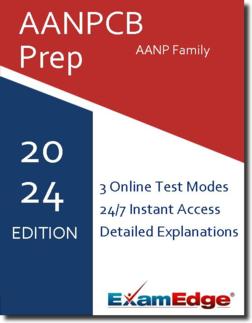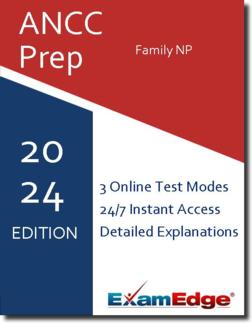Nursing Certifications to Consider to Advance Your Career
September-10-2024

Nurses are often the unsung heroes of our society. It might be safe to say that the world, or certainly the hospital system, would crumble without them. Not only do they take care of the sick, but they are the backbone of every segment of running a hospital.
They are sometimes as skilled as the doctors in certain areas, but they don't get nearly as much recognition.
Well, if you're looking to advance your nursing career for better conditions, growth, and new opportunities, here are some nursing certifications to consider.
Why You Should Consider Additional Nursing Certifications
There are many reasons why you would want to add some certificates to your resume, some being on the side of personal development, others on the side of professional advancement. They're all equally valid and when added up, they make a good case.
Some of the top ones include:
- More job opportunities - Employers are looking for highly skilled staff they can rely on. Specialized nurses are gems that are in high demand, so putting yourself in that category opens a whole new world of opportunities.
- Better conditions - While investing in your education can come as a big expense, it always pays off. In this case, it is the basis for more control over selecting new jobs, but also being able to negotiate better terms and conditions including your salary.
- Personal growth - Even though preparing for certification exams can be very taxing, especially for working individuals, it is an opportunity to get out of your comfort zone and learn more about yourself. Especially about your interests when it comes to your career.
What's more, all the new knowledge will lead to you being more confident and skilled in your day-to-day work life, resulting in higher feelings of self-fulfillment. - More likely to be in charge - If you are a born leader, you might be itching for some more responsibility and control in your work environment. For any nurse feeling ready to step into a leadership role, additional certification is a great place to start.
Building intellectual authority in a sought-after field is the best way to put yourself on the radar for higher positions and more leadership. - Providing better service - Last but not least, by obtaining more knowledge, you are directly providing your patients with better care and your co-workers with a reliable and efficient colleague.
Nursing Certifications You Should Consider
Here are some of the most useful nursing certifications that can help you in building your resume and career.
1. Cardiac Vascular Nursing Certification
If you are working in the cardiovascular department and want to participate in managing critical cardiovascular situations or are a member of an emergency team, this ANCC certificate is for you.
Aside from teaching basic life support skills, it provides you with much-needed information on how to recognize early signs of respiratory and cardiac arrest, as well as peri-arrest conditions, while giving you the necessary information on how to manage them.
Moreover, you'll be taught airway management and the management of ACS and stroke, as well as related pharmacology.
There is also an advanced version of this certificate for experienced providers.
But before that, we advise you to take cardiac vascular nursing practice tests to assess your knowledge and identify room for improvement before taking the official exam.
2. Pediatric Advanced Life Support.
For nurses who are looking to work with children, this certification is a requirement.
Additionally, this course is perfect for nurses working in emergency, critical care, and intensive care units.
It teaches you how to recognize a child in need of help, as well as the cardiovascular and breathing support you can give them.
To be able to take this certification exam, you must be proficient in pediatric BLS skills, so if you’re a recently graduated nurse, you ought to take that course first.
3. Family Nurse Practitioner (AANP-FNP)
Family medicine nurses are equipped to care for their patients throughout their lives. You are mainly going to be working in primary care with a very diverse demographic - from our youngest, all the way to the seniors.
So if you are looking to get into a field of medicine that allows you to form meaningful connections with your patients, this might be the field for you.

AANP-FNP certification has a longer list of requirements - you must have a valid RN license, an MSN degree or a similar higher education degree, 500 verified clinical hours, as well as some specific advanced coursework in psychology and pharmacology, among others.
If you feel like this is the right call for you, take AANP-FNP practice tests to assess your knowledge, build confidence, and identify areas that need improvement before the official exam.
4. ANCC Nurse Executive (NE-BC)
If you are a nurse who is looking for a more leading, management role, this ANCC certification is for you. It will signify that you are highly competent in leading a nursing team and being able to take charge in a variety of situations.
Requirements are that you are an RN and have a bachelor's degree in science in nursing with 2,000 hours of executive nursing experience. When you're ready to prepare for the official exam, ANCC Nurse Executive practice tests are available to help you hone your skills and boost your confidence.
Conclusion
Whichever nursing certification you consider for the next step in your career, you are guaranteed to get a well-rounded education and significant advancement opportunities in your future career.
Check out the #1 online test prep and start your preparations now!
Related Practice Tests
Blogs related to: Nursing Certifications to Consider to Advance Your Career








Becoming a Family Nurse Practitioner (FNP) is a challenging yet rewarding career path. It requires advanced education, extensive clinical experience, and successful completion of a certification exam. There are two nationally recognized organizations that offer certification exams for FNPs: the American Nurses Credentialing Center (ANCC) and the American Association of Nurse Practitioners (AANP). In this blog, we will discuss the differences between these two exams, which certification is most looked for in the industry, and the best way to prepare for the exam.























 AANP Family NP
AANP Family NP ANCC Family NP
ANCC Family NP  ANCC Cardiac Vascular Nursing
ANCC Cardiac Vascular Nursing